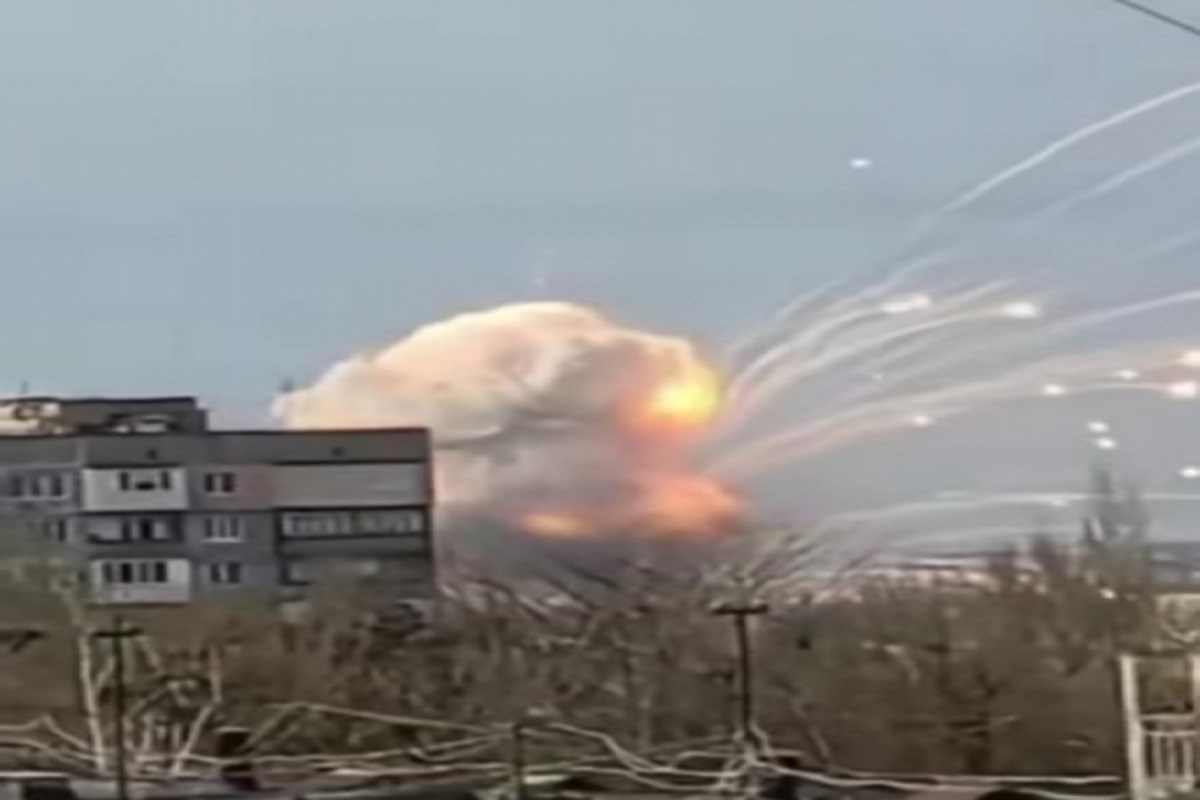Ukraine’s agricultural exports via Black Sea return to pre-conflict level
Ukraine's agricultural exports via Black Sea ports have reached pre-conflict levels, the government-run Ukrinform news agency reported, citing a senior diplomat.
The view from Kiev is that even a limited cease-fire, forget an end to hostilities, presents two grave perils for Ukraine.

Photo: IANS
There is a discernible move in Western capitals to seriously consider opening up back-channel conversations with Moscow about a ceasefire with Kiev as a first step to ending the Ukraine conflict which now clearly threatens to become a long-running war of attrition. The Russian army is estimated by security expert Steven Pifer to have had upwards of 15,000 soldiers killed in action apart from suffering a substantial loss of equipment, while the Ukrainian military too has taken heavy casualties albeit the flow of arms from the West has enabled its troops to continue fighting. With such losses on both sides ~ and horrific allegations of war crimes against the Russians to boot ~ the deep-seated Russo-Ukrainian animus would in the normal course preclude any thoughts of a negotiation.
Experts say the Kremlin articulated its war aims for Ukraine early on and is sticking to them: Denazification, demilitarization, neutrality, recognition of occupied Crimea as Russian territory, and recognition of Donetsk and Luhansk as independent “people’s republics.” So, the question for those exploring the possibility of a peace deal or an approximation thereof becomes, as Pifer frames it ~ Do those who are urging talks see space for any compromise that would not leave Ukraine in a substantially worse position than before the February invasion? The view from Kiev is that even a limited cease-fire, forget an end to hostilities, presents two grave perils for Ukraine. First, any cessation of fighting on a where-is-as-is basis would leave the Russians in occupation of vast swathes of eastern and southern Ukraine.
Secondly, the fear that the Russian army may use a cease-fire to regroup, rearm, and launch new attacks is ever-present. While it is the default position of nearly every serious policymaker in the West that the decision on whether to begin ceasefire negotiations should be left to Ukrainian President Volodymyr Zelenskyy and his government, the fact is that Western leaders don’t know how long the groundswell of support for Ukraine among their populations will last. With major economies heading towards a recession and Russian gas/oil supplies to Europe reduced significantly by President Vladimir Putin, a cold, hard winter looms. It is these factors which Kiev is slowly but surely being told to take into account when it decides whether to talk peace or not, and not just battlefield developments and future military realities.
Advertisement
The message being received in Kiev is loud and clear: If Ukraine’s leaders choose to begin negotiations, the West will enable rather than hinder them. There is an element of nuance here, though, which may be noted ~ it is the European Union which is expected to be the major player in backing an effort for a ceasefire in Ukraine rather than the United States of America. Not surprising because it is the Europeans who are paying the higher price for the war.
Advertisement